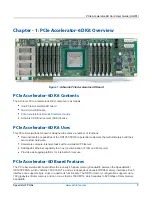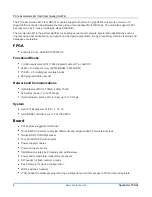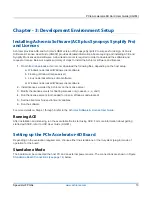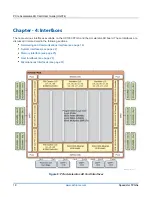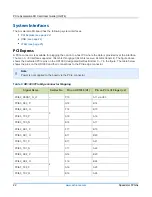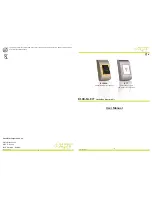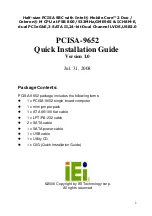
PCIe Accelerator-6D Card User Guide (UG074)
Speedster FPGAs
7
Two micro-USB connectors for bitstream programing via FTDI and to allow access to FPGA internal
registers via ACE demo command and control (DDC) connection
Note
Component numbers mentioned in this guide refer to PCIe Accelerator-6D Board component or device
markings. Board schematics can be made available upon signing an NDA with Achronix.
Achronix CAD Environment (ACE) Software
Achronix provides ACE software together with an Achronix-optimized version of Synplify-Pro from Synopsys (a
node-locked or floating version of the license is needed to use the ACE software for development). See
for more details about installation and
Accelerator-6D Card Development Environment Setup (see page 13)
use.
Figure 2:
ACE Development Environment





